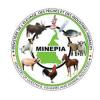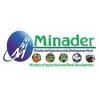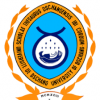Strengthening the regulatory framework to upgrade ethical review of clinical research and drugs safety monitoring in Cameroon » (BREEDSAFCA)
In Cameroon, health research ethics has made remarkable progress since 2009 till date. This thanks to the political will and with the support of development partners. In 12 years Cameroon has been able to put in place an ethics evaluation system defining the types, missions and competences of ethics review committees (ERCs). This system has started with setting up of the national ERC and of two out of 10 expected regional ERCs. In addition, some basic national regulation have been developed and made available, however the regulatory aspects on the administrative and ethical evaluation of health research projects, the modalities for the functioning of ethics committees and other bodies regulating health research ethics still require adjustments.
Despite the investigation of medicine safety during clinical trials, drugs that are marketed still need to be monitored to insure that during it real live use, it maintain positive risk benefit ratio. The Ministry of Public Health, which is primarily responsible for the supply and distribution of medicines, has set up a pharmacovigilance system to detect and investigate adverse events following authorization to market drugs. This system needs improvements to insure the monitoring of marketed drugs safety in health programs and health facilities.
The main objective of this project is to strengthen the regulatory framework for the ethical and administrative evaluation of clinical research and pharmacovigilance in Cameroon.
Specific objectives of the project include:
- To update regulatory texts relating to ethics and pharmacovigilance in Cameroon;
- To assess training needs of investigators involved in health research and of member of research ethics committees in research participants protection;
- To assess training needs of head of health program and health personnel on pharmacovigilance;
- To map the training curricula in health research ethics in health training institutions;
- To train all members of functional ethics review committees and significant fraction of Cameroonian researchers in research participants protection;
- To improve the Cameroon coverage in research ethic evaluation by creating two new regional ethical committees and two new institutional ethics committees;
- To strengthen the national pharmacovigilance system by putting in place pharmacovigilance teams in health programs and in one regional delegation;
- To provide minimum needed equipment for ethical committees and pharmacovigilance units in health programs.
This project is part of the EDCTP2 program supported by the European Union. It is implemented in Cameroon with the collaboration of:
- Ministry of Public Health: Division of Health Operations Research (DROS) and Department of Pharmacy, Drugs and laboratory(DPML)
- Ethics Committee: National Ethics Committee for Research in Human Health(CNERSH)
- Non-Governmental organization partner to MINSANTE: M.A. SANTE (Meilleur Access aux Soins de Santé)
The project is expected to improve the coverage and the performances of competent actors involved in protecting research participants and in monitoring the safety of marketed medicines and vaccines in Cameroon.
The project was initially planned for 30 months starting from November 2018 but it has been extended to 42 months. The activities implemented facilitated the development of the New Regulations for the Protection of Research Participants and Pharmacovigilance which have been submitted to the competent authorities for signature, also it made it possible to initiate the process of setting up two new Regional ERCs and pharmacovigilance teams in the health programs, to identify and prioritize training and intervention needs to improve the protection of research participants and the monitoring of drug safety. This progress has been possible thanks to the coordination and monitoring of interactions between the institutions and teams involved.
In the next few months, the project's objectives should be achieved with the signing of developed regulatory texts, the validation of the ethics review and pharmacovigilance procedure documents, the completion of the establishment of new ERCs in two regions and of pharmacovigilance committees in the health programs, the training of researchers and members of ethics committees in research ethics and protection of research participants, training of health program and health training teams in drug safety monitoring, provision of equipment to ERCs and pharmacovigilance teams, and organization of the project results seminar.











